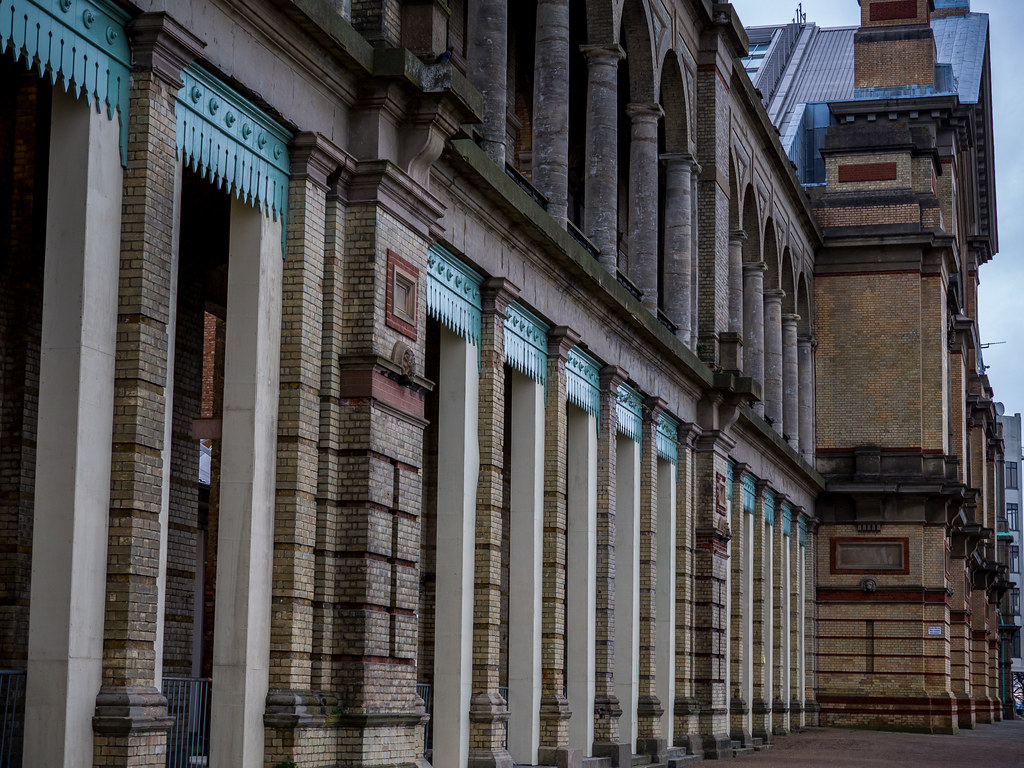I pass “Ally Pally” every day on the way to work. It is an inspiring building, particularly in the sun.
Today I found myself awake at 6:45am, the legacy of a dodgy self made curry the night before. Rather than trying to get back to sleep I decided to take advantage of the golden hour around sunrise to take some photos of Alexandra Palace.
Alexandra Palace is a building in North London. It was built in 1873 as a public centre of recreation, education and entertainment and was designed to be “The People’s Palace”. In 1936 it became the headquarters of the world’s first regular public television service, operated by the BBC. The Alexandra Palace television station was located on the site and its radio tower is still in use. The original Studios A and B still survive in the south-east wing with their producers’ galleries and are currently used for exhibiting original historical television equipment.
Alexandra Park was opened to the public on 23 July 1863. Originally the new building was to be named “The Palace of the People”; it was then decided the park and Palace should commemorate the new Princess of Wales, Alexandra of Denmark. However the building retained “Palace of the People” or “People’s Palace” as an alternative name. In September 1865 construction of the palace commenced.
The palace covers some 7.5 acres (30,000 m2). Work on the palace was completed in 1873 and, on 24 May of that year Alexandra Palace was opened. However, only sixteen days later a fire destroyed the palace, killing three members of staff. The palace was quickly rebuilt and it reopened on 1 May 1875.
One of the other things about “Ally Pally” that deserves a mention are the fantastic views of London. Although the conditions were not perfect today, it was still possible to see all the way down to Canary Wharf and the City, 7 or so miles away.
In 1935 the trustees leased part of the palace to the BBC for use as the production and transmission centre for their new BBC Television Service. The UK’s and the world’s first public broadcasts of television were made from this site in 1936. Two competing systems, Marconi-EMI’s 405-line system and Baird’s 240-line system, were installed, each with its own broadcast studio, and were transmitted on alternate weeks until the 405-line system was chosen in 1937.
Although, unfortunately, the weather was not kind, and due to some rail engineering works I had only 45 minutes at the palace, it’s always an inspiring place to visit. In many ways, it’s a far more worthy candidate for restoration by English Heritage than many stately homes – it tells a story of the late victorian age and carries a good deal of social history.
Taken with my GH3, 7-14mm, 12-35mm, and 35-100mm lenses












Love the black and white of Canary Wharf.
Cheers, it’s funny how sometimes a photo can come alive following a b&w conversion. Helps that this one follows the rules of thirds (not that I adhere to “rules” all the time)…